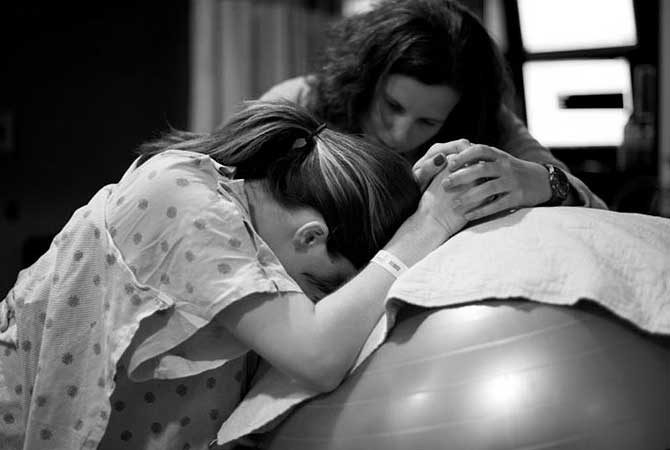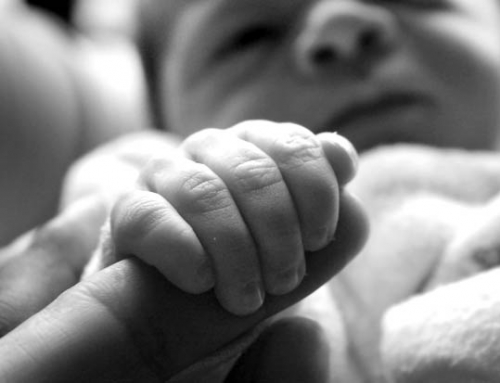DOULA services for labor/birth and the postpartum period are becoming more and more popular and well known worldwide. In fact they are becoming common-place in many developed nations such as the UK, USA, Canada, Switzerland, Australia, etc. Even in the UAE, Saudi Arabia, Qatar, Oman, Bahrain, Jordan, Indonesia, Malaysia, and Egypt there are growing numbers of doulas available, masha’Allah.
However, the concept seems to be fairly new amongst the Muslim populations.
Many of the AMANI affiliates certify as doulas, as well as childbirth educators.
So what is a doula and who needs one?
A doula is a woman who provides non-medical support during pregnancy, labor, birth, and the postpartum period (recovery time after birth). They usually have training and experience in childbirth, although they are not medically trained. Typically they will meet with the pregnant woman several times to help inform her of her choices and what to expect in birth. The doula will take the time to know her client’s desires for her birth and will encourage her to write a birth plan and provide tips for effectively communicating her wishes to her medical birth team.
Some doulas also offer some form of formal or informal childbirth preparation training as well. It is also common for the doula to stay with the mother for a short time after delivery to ensure a good start with feeding and caring for her new baby, as well as provide assistance in the mother’s care. Many doulas will make house visits during the postpartum period or may even provide comprehensive postpartum services which would include staying at the woman’s residence to help to care for the newborn, new mother, and pick up the slack in the household chores (cooking, cleaning, laundry, caring for elder children, etc.).
The duties and roles of the doula vary from case to case. What is wanted and needed by the woman and how the doula can fill these needs, is one of the many things they will decide upon during the pregnancy visits. This individualized attention and care can rarely be offered by any other childbirth professional.
In the hospital setting, the nurses, midwives, and doctors are busy attending to many patients and other duties. The doctor may not even be the same doctor she has had visits with during her pregnancy. Regardless, he or she often times does not come until it is time for the actual delivery of the baby. By this time the woman has usually spent a significant amount of time at the hospital in labor. The laboring woman can expect occasional checks during her labor, but most likely will not have someone from the hospital staff at her side the whole time (unless there are serious complications and she is being closely monitored). One major benefit of having a doula is that the laboring woman (and her family) can be assured they will not be left to labor alone. This is also a benefit to the medical staff as the patient and family are usually less needy or dependent on them for every small detail of the labor.
Having a doula can also provide a great relief of stress. This is especially true for the father, who may be the only other support person to attend the labor. In many cases the father (and mother for that matter) is unfamiliar with the birth process, medical protocols, and is simply at a loss as to what he can do to help. (Of course I recommend all parents take childbirth preparation classes which help to alleviate this situation.)
Additionally, since the doula is not usually an employee of the hospital, parents often trust the doula to provide unbiased information. Parents should be informed, however, that although the doula may be able to explain complicated medical terminology, she should not make decisions nor give specific advice about medical matters. She is a good source of information based on her experience, but she remains neutral in her involvement of medical matters and reminds the mother that it is her responsibility to make all decisions and to work with the medical team in doing so.
It is the doula’s role to support the woman as well as other family members who may be participating in the birth. It is her goal to help the woman have a safe and satisfying birth experience based on what each individual woman desires. This can be especially important to women who are residing away from extended family or who are foreigners in the country of the birth. These women typically will not have the traditional support of other, experienced mothers from their own family (mother, sister, aunt, etc.) to guide them through. The doula fills this gap by providing an important support throughout the pregnancy, birth, and postpartum time.
Even if the husband (or other relative) will attend the birth, a doula can provide support to the entire family. She encourages the husband and suggests things that he can do to help his laboring wife. She supports his role and does not replace his participation at the birth. Her ultimate goal is a good birth experience and positive family bonding of all members of the family through the miraculous experience of birth.
In an era where birth has become a process of medical management, a doula can assist the family in understanding the natural process and help them to have confidence in it.
Although the doula supports the woman’s choices regarding the use (or not) of medical interventions (pain relief, drugs to speed labor, episiotomy, cesarean, etc.), she usually favors natural approaches to birth and is well equipped to assist the mother through the emotional journey without the use of these interventions.
We feel that every woman deserves the support and assistance of a doula at her birth. Visit the Find Teachers/Doulas page for a list of AMANI certified affiliates to see if we can provide support in your area.





Leave A Comment